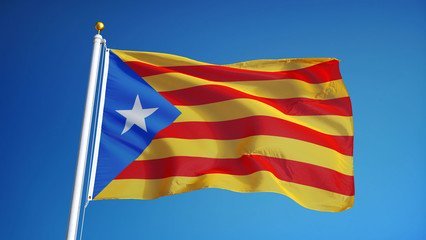Catalonia, the conflict of the yellow ribbons breaks out

There are many, they are everywhere, from Barcelona to the most remote villages of Catalan geography: yellow plastic ribbons tied to barriers or railings, parapets or balconies. For the independence activists, they are the symbol of the struggle to claim the release of presos politics, the separatist leaders imprisoned for months on charges of “rebellion”. But for days, in an alarming escalation of tension, they have become the new battleground with the unionists. First the night raids – dozens from the beginning of July – of small groups armed with scissors or knives that have the sole objective of removing the lazos amarillos to “recover public space”.
But for the first time directly in the field – also armed with scissors – the Ciudadanos leader, Albert Rivera, who, for the benefit of cameras and photographers, ventured into a demonstrative withdrawal of tapes from a fence in the small town of Alella, in the province of Barcelona. With him also the regional president of the party Inés Arrimadas, in a media showdown that the anti-nationalist formation hopes will bring an electoral income.
Rivera’s gamble is dangerous (more cautious on the subject so far has been the neo-leader of the Popular Party, Pablo Casado), but the “conflict of the yellow ribbons” is also risking to complicate the timid attempts at dialogue between the government of Madrid led by Pedro Sánchez and the executive of the Generalitat chaired by Quim Torra. At the origin of the conflicts, the fact that, on several occasions in the last few days, the Mossos d’Esquadra – the Catalan regional police – have identified the perpetrators of the anti-tape raids to assess whether any crime has been committed (there is talk of any infringements of the law for the safety of citizens – Rajoy’s “gag law” – because the authors often have to be hooded and armed with white weapons). But three days ago the Catalan prosecutor opened an investigation into the legitimacy of the Mossos’ action.
From Madrid, the state attorney general, Maria José Segarra (nominated by the Sánchez government) tried to allay the controversy by saying that “neither putting on or taking off yellow ribbons can be considered a crime”. And then you can go on forever. The other night, 80 hooded people cleaned lazos in Cabrera de Mar, in the Maresme. Yesterday morning the local independence activists had already taken steps to flood the country again with yellow ribbons.


